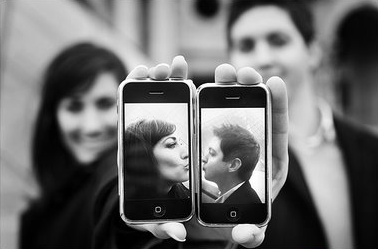
Technology is arguably the biggest thing to hit the Irish dating scene since contraception. It’s more common in a household than potatoes for dinner and even more important to us than the results of the GAA.
We live in a world where there’s an app for everything, so it’s no real surprise that relationships are moving online. When we’re not checking our Facebook, sniggering at Twitter or trying to devise witty Yik Yaks, we’re thinking about it. Technology is ubiquitous and all consuming, helping us make decisions and plan our days. Now, technology is helping us find love (or at least a one night stand).
Once only an option for the desperate, perennial singletons in society, online dating is becoming more and more mainstream. At the forefront of this, of course, is Tinder. Skipping the bland “I like walks on sandy beaches” stuff and cutting right to the chase, Tinder is particularly popular with the under 25s. In a survey conducted on DCU students, 57 per cent currently use Tinder and a further 28 per cent have in the past.
There are reportedly 275,000 Tinder users in Ireland and an estimate of between 50 and 90 million worldwide. The game-like format and general convenience of the app have won it such a following, but questions still remain about its effect on romantic relationships. Is the new swipe philosophy just a bit of fun or the sign of a cultural shift to a more impersonal, dismissive mentality?
Where Tinder corners the app market on casual dating, several new apps have been created to help once in a relationship. Kahnoodle, started in 2013, is an app that aims to “gamify” your relationship by accumulating points (“kudos”) and rewards for real life actions. In short it aims to get you doing more for your partner. The app is an interesting new take on relationships but has not garnered the following Tinder has.
Though apps like Tinder and Kahnoodle are only as real as users make them, I worry they are causing a subliminal mental shift. Because of their convenience and their impersonal nature, our partners are becoming more risk-assessed and our romantic gestures more calculated. Our way of handling relationships is different from 30 years ago, and will, I predict, be vastly different in 30 years to come. With all said and done, should we still swipe right to this idea of romance?
Rebecca Lumley




Leave a Reply